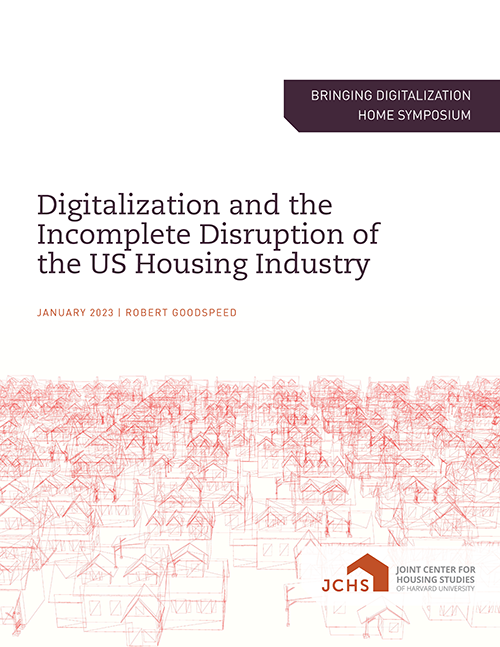Digitalization and the Incomplete Disruption of the US Housing Industry
The system of sector housing investment and finance that has evolved in the United States has long had a powerful influence on the costs, type, and location of housing, given the dominant role of the private sector in the construction, ownership, and management of housing in the US. This commentary was prepared in reaction to two papers, presented at the Bringing Digitalization Home symposium hosted by the Harvard Joint Center for Housing Studies in March 2022, which each analyzed how digitalization was changing the residential real estate industry. The paper by Desiree Fields documents how digitalization and economic shifts have resulted in the rise of what she calls the “automated landlord,” new firms that buy and hold large portfolios of single-family properties. Mike DelPrete’s focus is on a set of new firms, backed by large amounts of venture capital (VC), which have shaken up the residential real estate world. These firms employ new business models such as using low fees instead of commissions to sell homes (fixed-fee agencies), buying homes directly from sellers using algorithms to set the price (iBuyers), or offering homebuyers novel financing options (power buyers). In sum, Fields’s and DelPrete’s papers demonstrate how the entrance of new VC-backed and digitally savvy firms has resulted in changes in the real estate market, challenging existing real estate brokerages and landlords and shifting market power among firms.
This paper was presented as part of “Panel 2: How Is Digitalization Changing Investments in Housing?” at the symposium Bringing Digitalization Home: How Can Technology Address Housing Challenges?, hosted by the Harvard Joint Center for Housing Studies in March 2022.

